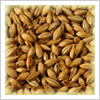您的购物车
 UK: Diageo pauses malt production at Roseisle site as whisky industry goes into decline
UK: Diageo pauses malt production at Roseisle site as whisky industry goes into decline
Whisky giant Diageo has paused its malt production at its Roseisle site near Kinloss in Moray, the Press & Journal reported on November 15.
The news comes as the whisky industry has gone into decline and growers of spring barley have been left with huge losses this year.
Rumours circulated this week that the Roseisle Maltings may be shutting for good but the company confirmed on Thursday that production was only being paused on a “temporary basis.”
A spokesperson for the company said: “The site remains open and all staff continue to operate at Roseisle or have been redeployed.
“The pause in production is temporary and has been caused by the nature of the Scotch whisky industry at present.
“We can’t put a timescale on this pause yet as it is still under review. We will communicate future plans as part of our normal planning cycle.”
However, other sources told The Press and Journal that the company has already stated to some grain merchants that the site will not be taking in any grain from next year’s harvest.
This will undoubtedly leave growers feeling more anxious as they wait to secure contracts for next year’s harvest.
The Roseisle Maltings has been producing malt since 1981 and has an annual capacity of 35,000 tonnes.
One farmer from Elgin said if the rumours were to be true it would be a “real blow” to local growers who have the facility on their doorstep.
Further south, Bairds Malt announced that it is closing its Pencaitland Maltings due to a “medium-term reduction in demand”.
The plant was built in 1978 and has an annual capacity of 47,000 tonnes.
The closure will lead to 19 redundancies.
Other production plants owned by the company in Scotland include Inverness, Turriff and Arbroath.
Banff farmer and NFU Scotland combinable crops chair Jack Stevenson said that a lot more winter crop has been sown this year.
This is due to the lack of certainty in the spring barley sector.
He also said he is growing oilseed rape for the first time on his own farm this year.
“As farmers, we can only hope in the next few years that demand will increase again,” said Mr Stevenson.
“The Scotch whisky industry is worth £5 billion annually so on average we need to produce about 900,000 tonnes of malting barley each year.
“It would be very disheartening to see local maltings close when these plants have a distinguished provenance for sourcing locally produced barley.”
Mr Stevenson said the union’s combinable crops committee has been working hard to build a relationship with the Scotch Whisky Association.
He said NFUS will continue to engage with it.
“It’s not all about price – provenance, sustainability and lowering carbon emissions is what they are looking for,” he said. “But we cannot do any of this if we are not growing the crop in the first place.”
Mr Stevenson added that NFUS is also working with the Agricultural Industries Confederation to secure fairer and clearer grain contracts.
Meanwhile, recent figures released by AHDB suggest that next year’s UK harvest will see a 30% rise on the year in the area of oilseed rape grown to 391,000 hectares.
The levy board said oilseed rape produced good yields this harvest and has a more favourable margin outlook compared to other crops.
后退





